Access to Electricity Rises Sharply but Supply Badly Lags behind
By Riaz Haq
CA
Pakistan has made remarkable progress in electrification of its towns and villages both in absolute terms and as percentage of population over the past two decades, according to a recently-released report titled "Global Tracking Framework" issued jointly by the World Bank and the International Energy Agency.
This report, at least partly, explains the dramatic increase in demand-supply gap and consequent increase in load-shedding in Pakistan.
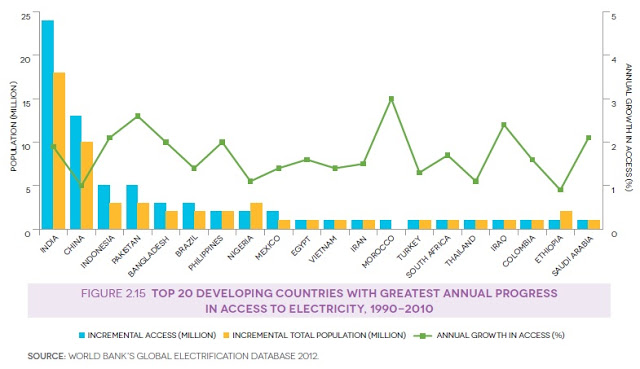
The report says that 60 percent of Pakistanis had access to electricity in 1990, 80 percent in 2000 and 91 percent in 2010. By 2010, 88 percent people of rural and 98 percent of the country's urban population had access to electricity. Comparable figures in India are as follows: 51% in 1990, 62% 2000, and 75% in 2010. 93% of urban and 67% of rural Indians had access to electricity in 2010.
The report identifies the top 20 countries with the largest number of people to have gained access to electricity over the past 20 years. Of these, 12 are in Asia. They brought electrical service to 1.3 billion people (of the 1.7 billion electrified globally between 1990 and 2010), 283 million more than their population increase.
The most impressive expansion of electrification occurred in India, China, Indonesia, Pakistan and Bangladesh. The advances in these populous countries are of enormous significance for achievement of the global universal access target.
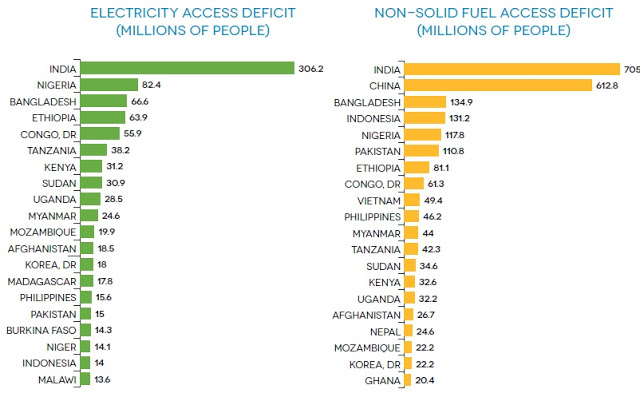
The detailed World Bank report identified India as the most deprived country in terms of access to energy: as many as 306.2 million of its people are still without this basic utility. The remaining 19 nations lacking access to energy, with the number of deprived people, is as follows: Nigeria (82.4 million), Bangladesh (66.4 million), Ethiopia (63.9 million), Congo (55.9 million), Tanzania (38.2 million), Kenya (31.2 million), Sudan (30.9 million), Uganda (28.5 million), Myanmar (24.6 million), Mozambique (19.9 million), Afghanistan (18.5 million), North Korea (18 million), Madagascar (17.8 million), the Philippines (15.6 million), Pakistan (15 million), Burkina Faso (14.3 million), Niger (14.1 million), Indonesia (14 million) and Malawi 13.6 million).
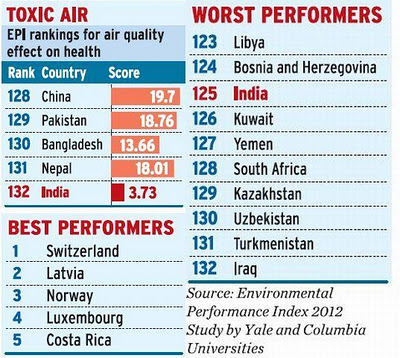
In addition to access to electricity, the report also details access to non-solid fuels like oil and natural gas (fuels other than firewood, dung or charcoal commonly used in poor countries for cooking) as a key parameter of progress in terms of energy. Such access helps reduce environmental pollution and associated human health hazards.
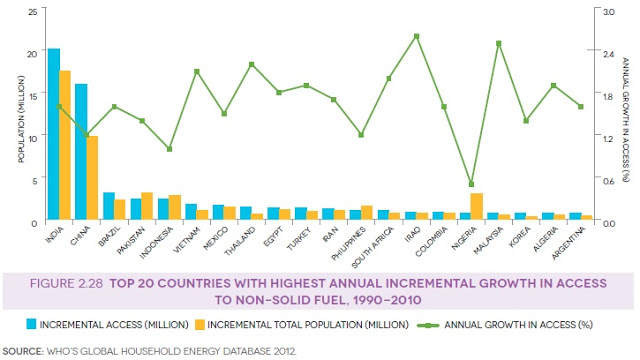
The goal of universal access to modern energy depends critically on the efforts of 20 high-impact countries which include Bangladesh, China, India and Pakistan. Together, these 20 countries account for more than two-thirds of the population currently living without electricity (0.9 billion people) and more than four-fifths of the global population without access to non-solid fuels (2.4 billion people). In terms of electricity, India has by far the largest access deficit, exceeding 300 million people, while for non-solid cooking fuel, India and China each have access deficits exceeding 600 million people.
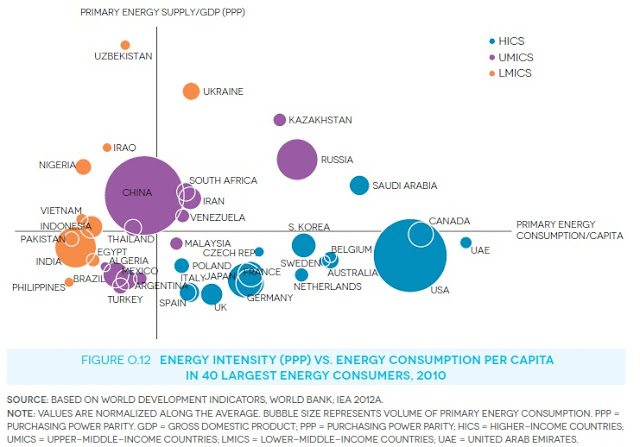
This tracking report is part of the UN's Sustainable Energy For All (SE4ALL) Initiative launched in 2012. The initiative recognizes the importance of universal access to modern energy as a key part of empowering the poor and lifting large numbers of people out of poverty and deprivation.
For the newly-connected rural poor in Pakistan, even a couple of hours of electricity a day is better than no electricity at all. Even a brief period of service enables them to charge up their cell phones and watch a little bit of television to stay informed and connected. These small things significantly improve the quality of life of those who lived without any electrical connections in the last decade or two. Eventually, one hopes that the energy crisis will be resolved to bring supply and demand in better balance.
------------------------------------------------------------------------------
Back to Pakistanlink Homepage

